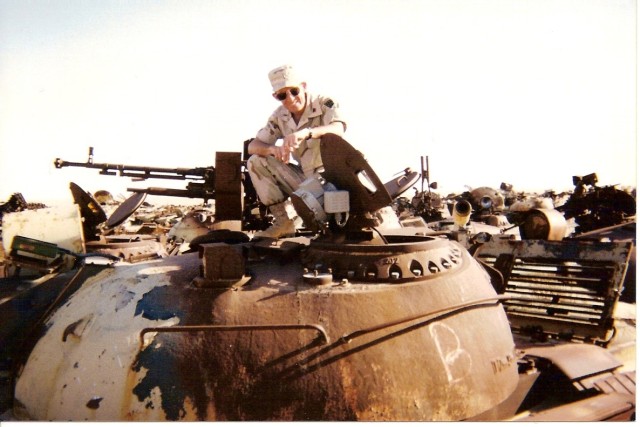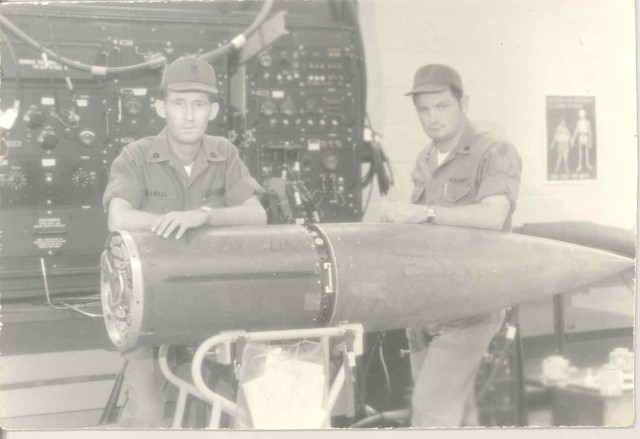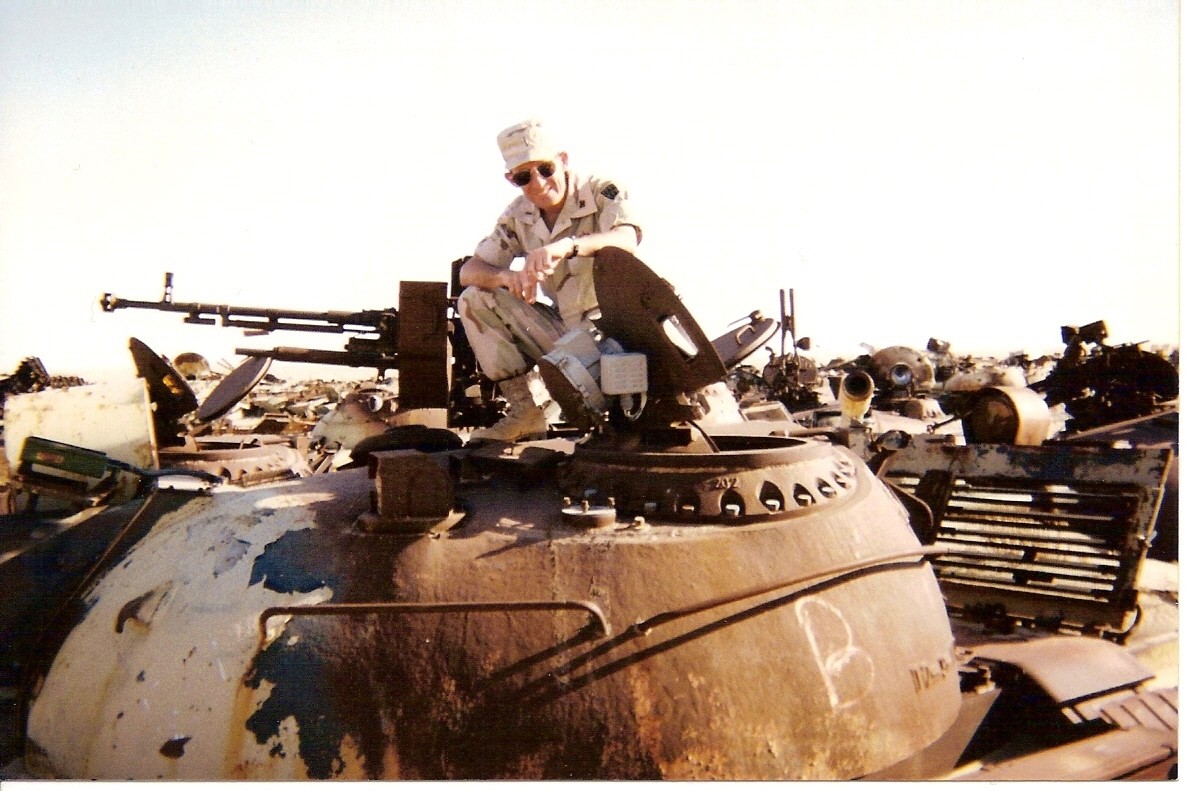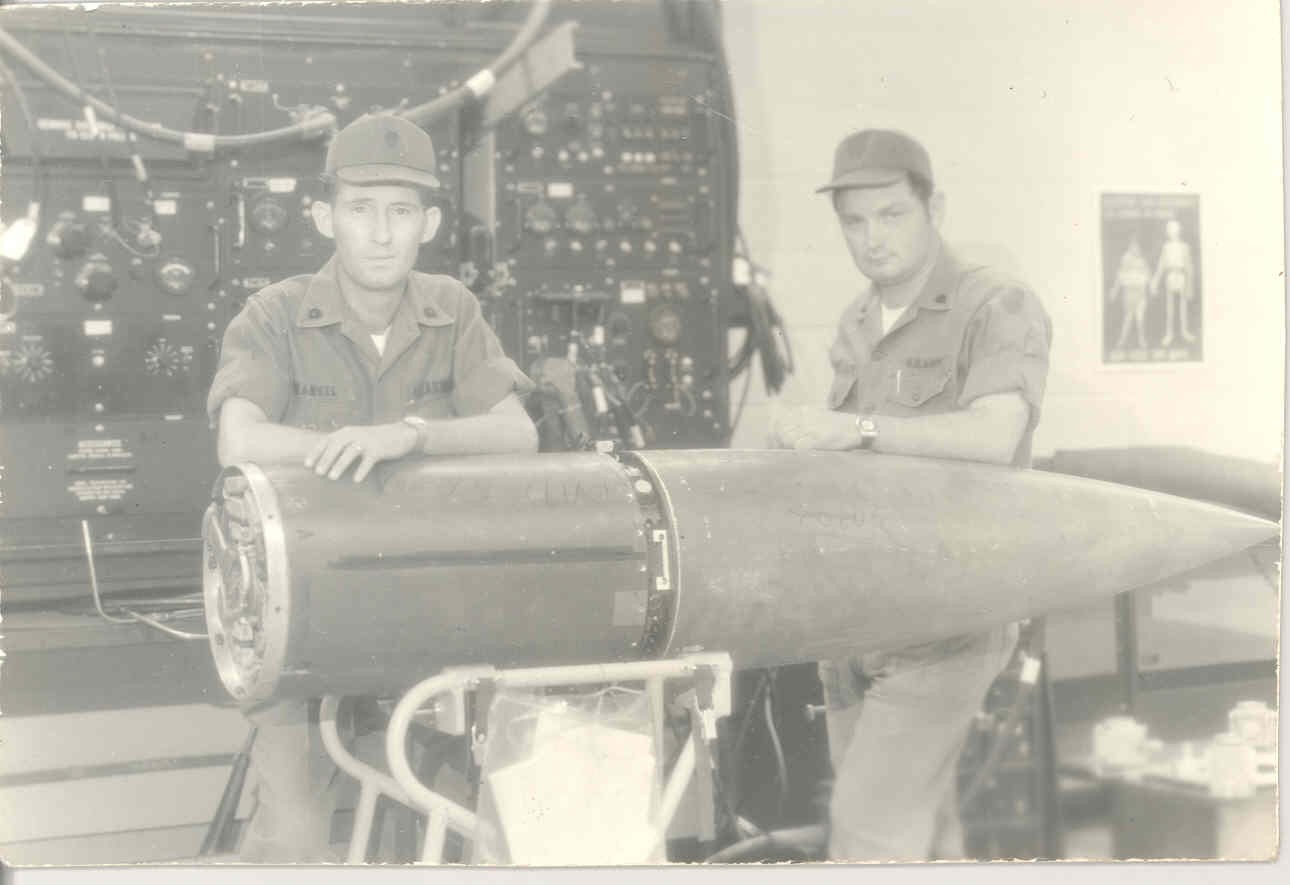FORT BLISS, Texas (Army News Service, Feb. 20, 2007) - Robert Rangel had two choices: show up at the induction ceremony Jan. 10, 1967, or go to jail. He chose the former, raised his right hand and became Pvt. Robert Rangel.
Rangel, an El Paso native, said he is supposedly the last Vietnam draftee without a break in service left on active duty. After 40 years, two months and 17 days, the chief warrant officer is hanging up his jump wings and retiring from a job in which he has spent most of his adult life.
Before being drafted, the air defender was a student at Texas Western College. "My grades were not that good, and the lady at the draft board got fed up with me and my Class II-S deferment (student deferment)," said Rangel. "I had to report or go to jail, because back then they meant it."
Rangel did not have to travel far for his basic training at Logan Heights, which he said does not exist anymore. His advanced individual training was in the area by the Fort Bliss' commissary, which in 1967 was an olden wooden barracks.
Rangel said more than 90 percent of the people who graduated from his AIT class went straight into infantry and then Vietnam. Instead of becoming a grunt, he became an air defender and went to HAWK Missile School.
"I was hand-picked and I was the only one of the 26 in the class who did not have a college degree," he said.
After HAWK Missile School, Rangel was one of the first to attend Vulcan/Chaparral School in California in 1968. By then, most of his fellow AIT Soldiers were in Vietnam. When four of the new Vulcan/Chaparral tracks went to Vietnam, Rangel followed the other two to Fort Sherman, Panama.
While waiting for the tracks to follow the others to Vietnam, Rangel said he was picked to join the Special Forces.
"It happened by accident, and I never put in for it," Rangel said.
After joining the Special Forces, Rangel experienced his first parachute jump - a jump he completed without any training.
"My first parachute jump was a parachute on your back and you jump, no formal training, nothing," Rangel said. "The first jump was easy because you did not know what to expect. The second and third were the scary ones because you already knew what was ahead of you."
After two years, Rangel went to Cambodia and Vietnam. Rangel would spend less than a year in Vietnam before returning to Panama. After Vietnam and Panama, Rangel decided to leave the Army. He said the Army allowed Soldiers a 90-day grace period to reenlist and keep their rank. Rangel returned on day 89, after getting married and becoming unemployed.
"The Army was waving $10,000 at me. At the time, this was a lot of money. I actually paid cash for my first home, $7,600. I even had money for furniture," Rangel said.
Rangel returned to HAWK, which was a critical military occupational specialty. He was promoted to staff sergeant within 18 months, sergeant first class by 13 years and was well on his way to being promoted to master sergeant before he joined the warrant officer ranks.
"At the time my goal was to be sergeant major of the Army," Rangel said. "I joined the warrant officer ranks because, at the time, they had a lot more influence in the Army. We had a more technical background, were given special schooling and ran the missile sites."
Rangel has been a warrant officer for the last 27 years. He has spent 26 of his 40 years overseas and served in 28 line units.
"Back in those days, 75 percent of our jobs were overseas in the air defense arena," Rangel said.
He said there were times where he did back-to-back tours in Germany and three back-to-back tours in Korea.
"At this time we were facing the Korean challenge and we were right in the middle of the Cold War in Germany," he said. "I spent about 12 years in Germany."
Although Rangel spent a lot of time overseas, he always enjoyed his job and the people he worked with, especially the line units. He said he has always been a "line dog."
"I like being with Soldiers, that is where it is at," Rangel said.
Rangel said when he took the oath he never imagined spending more than 40 years in the Army. When Rangel entered the Army, the country was at war and he is leaving with it at war.
"I have seen four generations of growing up and there is nothing like being there in the dumps with Soldiers," Rangel said. "The best thing about being in the military is knowing I come from a very honorable institution of the friendships I have made all the years in the line unit. You grow up as a unit and as a family. I am really going to miss it.""




Social Sharing